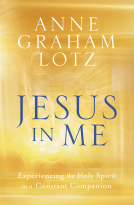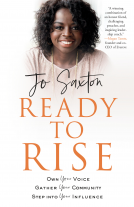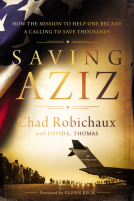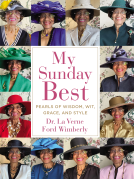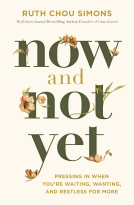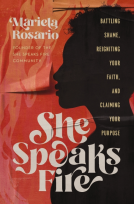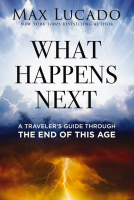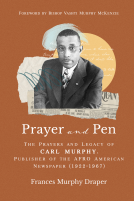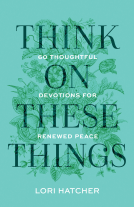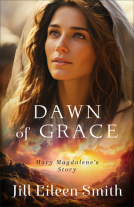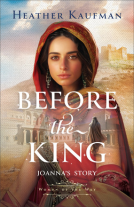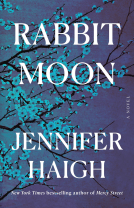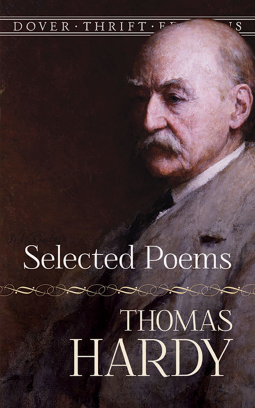
Selected Poems
by Thomas Hardy
This title was previously available on NetGalley and is now archived.
Send NetGalley books directly to your Kindle or Kindle app
1
To read on a Kindle or Kindle app, please add kindle@netgalley.com as an approved email address to receive files in your Amazon account. Click here for step-by-step instructions.
2
Also find your Kindle email address within your Amazon account, and enter it here.
Pub Date Dec 16 2015 | Archive Date Mar 01 2016
Description
This modestly priced volume contains seventy of Hardy's finest poems, including "The Darkling Thrush," "Hap," "The Ruined Maid," "The Convergence of the Twain," "I Look Into My Glass," "Ah, Are You Digging on My Grave?" and many others. These remarkable poems offer ample evidence of Hardy's intense perception and his peculiar power to express deep emotion. They also reflect his distinctive style, which fuses a reliance on traditional stanza formats and rhyme with a unique diction and imaginative power.
Available Editions
| EDITION | Paperback |
| ISBN | 9780486287539 |
| PRICE | $2.50 (USD) |
Average rating from 14 members
Featured Reviews
 Kaye T, Reviewer
Kaye T, Reviewer
I have read many of Thomas Hardy's books, but this is my first exposure to his poetry. I wasn't sure what to expect, but I was pleasantly surprised. I especially liked his one about the Thrush singing. In some ways it really made me feel I was there. Would recommend highly. Well worth the read.
 Joseph S, Reviewer
Joseph S, Reviewer
Thomas Hardy the author of such classic novels as The Return of the Native and Tess of the D'Urbervilles, Thomas Hardy (1840–1928) was also a great poet. His lyricism, subtlety, depth, and variety have earned him a significant place in the ranks of modern English poets.
Not a critique of Hardy as much as the book itself. Hardy's poetry is easily recognized as "classical" poetry. There is a lyrical quality that took me back to English literature class in college. However, the reading is easier without a professor raging on about rhyme scheme or fertility symbolism. It is enjoyable poetry that can be appreciated by all readers.
As a collection, Dover Publications does what it excels at doing. It brings the reader a fine collection of poetry in an easy to handle size. At eighty pages, this collection is intimidating in itself and being a collection of poetry can be picked up and read and put down again. There is not the need or feeling to read it all in one sitting. In fact, it is better to take your time and enjoy at your leisure.
In Modern Poetry our professor taught poems by Thomas Hardy (1840-1928), including Channel Firing In The Time of 'The Breaking of Nations," and Neutral Tones. They were not poems I forgot, and I have forgot most of what we read that semester.
Many know Hardy's novels because of the films based on them. Hardy was unable to publish his poems until his novels brought fame and financial security. He wrote 900 poems over his lifetime and 14 novels.
The poems in the Dover Thrift edition include selections from Wessex Poems and Other Verses (1898), Poems of the Past and the Present (1901), Time's Laughingstock and other Verses (1909), Satires of Circumstance (1919), and Moments of Vision and Miscellaneous Verses (1917.)
You don't turn to Hardy for happy love poems. He recalls the losses and divisions, not the lyric joys and bliss of love.
The Voice is one of my favorites. "Woman much missed, how you call to me, call to me/Saying that now you are not as you were/When you had changed from the one who was all to me/But as at first, when our day was fair." Hardy wrote this after the death of his estranged first wife in amends for his later treatment of her.
Neutral Tones was taught in my Modern Poetry class. It is atmospheric and concise, with sympathetic nature reflecting the inner desolation of a man who reads betrayal in the smile of his beloved.
There are poems which tell a story.
The Burghers (17--) concerns a man discovering his wife with her lover. He raises a knife but seeing his wife's love for the other man he stays his hand, considering his choice of righteous vengeance or mercy.
In Her Death and After a man is called to the death bed of the woman he loves but who married another. She has given birth to a lame child and wishes it had been theirs. Time passes and the husband remarries and has more children. The narrator watches helplessly as the lame child is pushed aside, unloved. He spins a lie and claims the child is his own.
Most memorable and disturbing are Hardy's war poems. We meet the the war dead in throngs and as individuals. The Boer War and WWI were waged during his lifetime. You won't find war glorified in these poems.
In Drummer Hodge a young lad dies in the Boer War and is buried under "strange stars."
The Souls of the Slain come home to England's coast to "feast on our fame", only to be told that their loved ones do not think of their sacrifice but hold dear to memories of 'old homely acts'.
In The Man He Killed a soldier muses over the irony that the foe he killed in battle he would have treated to a a drink had they met in a bar.
The poem that has haunted me is San Sebastian (August 1813) With Thoughts of Sergeant M-- (Pensioner), Who died 186- . Two men met on the Ivel Way. One remarks on seeing the other's daughter. The father responds by telling about the girl he "wronged in Peninsular days," when out of the trenches the soldiers stormed San Sebastian for five hours. Victorious, the men ransacked the city where he came upon a girl and raped her.
She raised her beseeching eyes to me And I heard the words of prayer she sent In her own soft language...
Fatefully I copied those eyes for my punishment In begetting the girl you see! The father finishes by saying,
So, to-day I stand with a God-set brand Like Cain's, when he wandered from kindred's ken...
I served through the war that made Europe free;
I wived me in peach-year. But, hid from men,
I bear that mark on me.
Researching and reading about San Sebastian brought understanding of the horror behind Hardy's poem. The British siege of San Sebastian took place during the Napoleonic war when Spain was ruled by Napoleon's brother Joseph. The town was well defended and the British and Portuguese suffered heavy losses before finally breaching the wall and taking the town. After weeks of war and carnage the soldiers, victory finally won, they found wine and became a drunk mob. They burned the town, killed up to 1,000 citizens, and raped the women.
According to one first hand account, "From every quarter we heard the cries of distress of women who were being raped, without regard either to their tender you or to their respective age; wives outraged under the eyes of their husbands, girls dishonored in the presence of their parents...Other crimes more horrible yet were committed on this day, and it's only a sense of 'modesty' which prevents us naming them."
And of this dehumanizing massacre Hardy explores how men live with what they have done. It is a powerful poem, relevant to all eras.
These are not poems you read in great gulps. I spent several weeks reading this volume and have not read all the poems yet.
I received a free ebook from the publisher through NetGalley in exchange for a fair and unbiased review.
 Wayne M, Reviewer
Wayne M, Reviewer
I was pleased to be able to read 'Selected Poems' by Thomas Hardy (edited by Robert Mezey). I was aware that he had written poems but I don't think I'd had the chance to read any.
Hardy wrote more than 900 poems, which seem like a pretty overwhelming place to start, so this is a good selection since there are sixty-nine presented here from a variety of time over his career from 1898 to 1917. These are solid poems and probably not the sort of collection that should be read straight through. There are themes of war and love and loss. Lots of loss. Hardy has at least one poem in this collection written after his wife died. There are themes that recur, but that doesn't make the collection feel tedious or repetitious. The curation is good, and there are footnotes scattered along the way to help illuminate passages or historical data.
I was glad to get a chance to read this collection and I emjoyed the poems presented.
I received a review copy of this ebook from Dover Publications and NetGalley in exchange for an honest review. Thank you for allowing me to review this ebook.
 Michelle K, Reviewer
Michelle K, Reviewer
Selected Poems by Thomas Hardy
Dover Publications
Poetry
Pub Date Dec 16, 2015
I was given a copy of Selected Poems by Thomas Hardy through the Publisher and there partnership with Netgalley in exchange for my honest review which is as follows:
This book shows that Thomas Hardy not only had talent as a Novelist but a poet as well. His talent shines through in the poems in this collection.
I give this collection of poetry five out of five Stars
Happy Reading…
 Pamela R, Reviewer
Pamela R, Reviewer
This Dover edition was first published in 1995 and reissued in 2015 under the editorship of Bob Blaisdell. It contains 69 of the 900 plus poems which Thomas Hardy published. Although known for his largely nineteenth century novels, his writing spanned the centuries and all but one of his volume of poems was published after 1900. He always claimed to prefer writing poetry and said that he gave up writing novels after the reception given to Jude the Obscure.
As a place to start when reading Thomas Hardy's poems, this edition seems to be accessible. It offers a range of his poems from different collections: Wessex Poems and Other Verses (1898), Poems of the Past and the Present (1901), Time's Laughingstocks and Other Verses (1909), Satires of Circumstance (1914) Moments of Vision and Miscellaneous Verses (1917). There is also a single poem, The Calf (1911).
I always like to dip into a collection of poems as I have done with this edition. I had an e copy of the poems and I did feel that in this case, I would have preferred a print copy as I would have found it easier to navigate through. This is personal preference, I know. Familiar Hardy themes appear in his verse. Loss features heavily, especially in the selection of those he wrote after the death of his first wife, Emma Hardy. These are found from p 49 starting with Exeunt Omnes which he wrote in 1913. His love of Nature is found in his poetry and I particularly enjoyed the detail in Overlooking the River Stour, with the repetition of the comings and goings of the birds and the wildlife down by the river.
Death and War feature in this volume, from the Boer War and the First World War. Most poignant to me is The Souls of the Slain, where the dead of the war return home, to find that their glorious deeds are not widely revered by the nation but that only their insignificant boyhood deeds are remembered by their families.
Highlight: The Darkling Thrush, written at the turn of the century which ended on a note of hope through the fragile song of the bird.
So little cause for carollings Of such ecstatic sound Was written on terrestrial things Afar or nigh around,
That I could think there trembled through His happy good-night air Some blessed Hope, whereof he knew And I was unaware.
SELECTED POEMS
(Dover Edition)
Written by Thomas Hardy 2015, 103 Pages Genre: poetry, classics
(I received an ARC from the NETGALLEY in exchange for an honest review.)
★★★★
I really enjoyed this collection of Thomas Hardy's poetry. I like that while it has great imagery it is easy to understand (or at least I think it is). One of my favourite poems is HER INITIALS. I just love the words used in it.
k (My Novelesque Life)
 Soudha P, Reviewer
Soudha P, Reviewer
Being a fan of Thomas Hardy's novels, I was glad to be able to give his poetry a go through this collection. I really enjoyed these poems, many centered around themes we also meet in his novels. Other poems though were different in style and atmosphere than his novels, something which I found quite interesting. Overall, this collection will certainly please fans of Thomas Hardy.
 Susan D, Reviewer
Susan D, Reviewer
Although I have read several of his novels, this is the first time I have read Thomas Hardy's poetry and, as it does in all of its collections, Dover has gathered a selection from throughout his writing career. What struck me throughout my reading was the almost ever-present sadness. There were some poems that escaped into blissful enjoyment of nature or love, but it seemed that the majority were caught up in loss of life or love or health. As I said in one of my updates, and reaffirm on finishing reading, there is much sadness in the poems --both personal and related to war time loss. Also, some very poignant writing. I am looking forward to reading his biography as I wonder how many of the very personal-appearing poems may be autobiographical (if any).
While there is much sorrow in Hardy's poetry, there is also beauty, the joy of nature, the intensity of tangled emotions and relationships. This is a very nice introduction. Dover does its usual consistent good work here. I definitely would recommend this book to anyone wishing to dip into the poetic works of Hardy. There are some 69 poems, taken from collections written between 1898 and 1917.
A copy of this book was provided by the publisher through NetGalley in return for an honest review.

